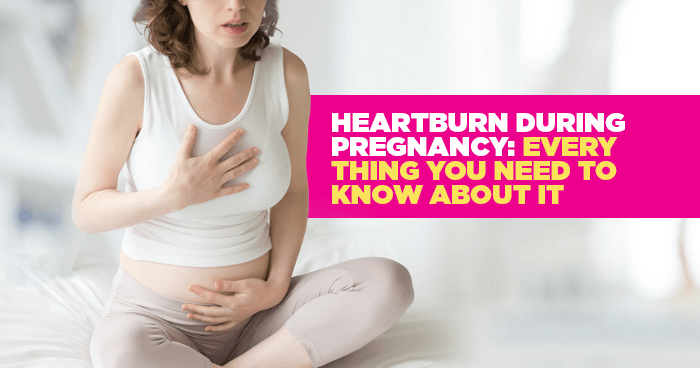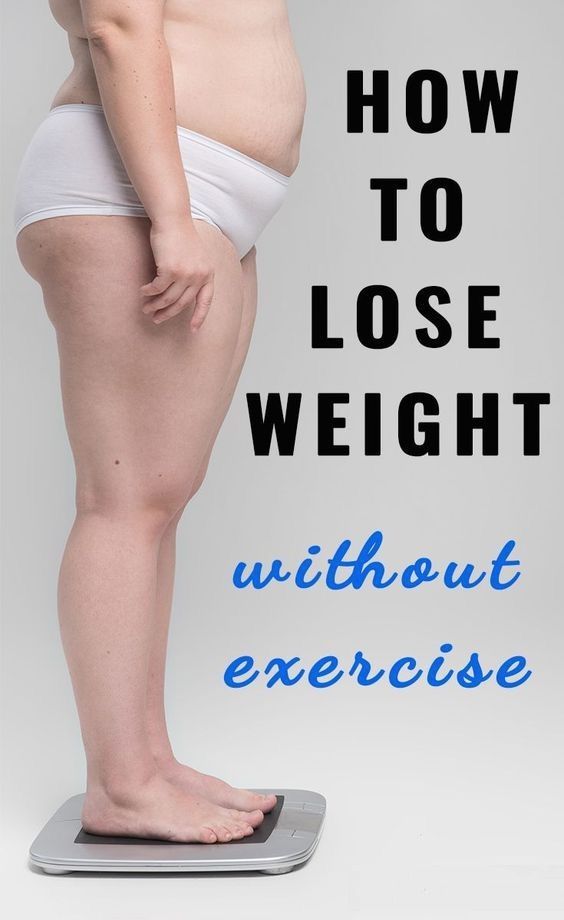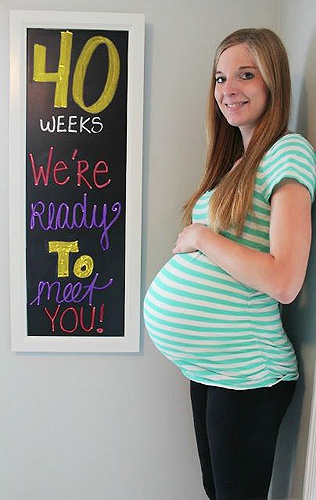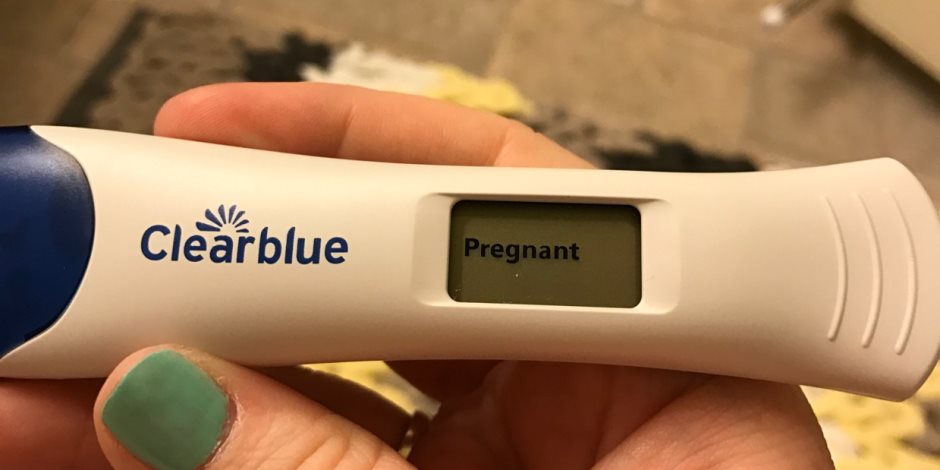Can itching be a sign of pregnancy
Causes, Treatments, When to See Your OB
Scratch, scratch, scratch. All of a sudden it feels like all you can think about it how much you itch. Your pregnancy may have brought on a whole host of new “fun” experiences: dizziness, nausea, heartburn, or even trouble breathing.
You’d likely been warned about all of these from other pregnant women and weren’t shocked when you hit these milestones in your pregnancy journey. The last thing you imagined you’d be feeling though was itchy!
You hadn’t heard about intense itching during pregnancy from a lot of your friends, so now you’re wondering: What’s causing this? Is this normal? Should I be worried?
Although we can’t diagnose the exact cause of your itchiness, we’ve compiled a list of some common reasons pregnant women may be feeling the urge to scratch — and some signs you should head in to see your doctor.
There are many reasons why you may feel itchy during pregnancy. These might include:
- Stretching skin.
First pregnancies and pregnancies with multiples tend to cause skin to stretch quite a bit more than it is used to.
- Dryness. Hormone changes in pregnancy can cause itchy, flaky dry skin.
- Perfumes or fabrics. Different materials and chemicals can literally rub you the wrong way.
- Hormones. The hormonal changes you experience in pregnancy can affect everything from mood to circulation to, yes, itchiness.
- Cholestasis. This is a liver disorder that can result in the buildup of bile acids in the blood that cause feelings of itchiness.
- Pruritic urticarial papules and plaques of pregnancy (PUPPP). This is an itchy rash that occurs around stretch marks during late pregnancy.
- Prurigo. These crusty, itchy bumps on the arms, legs, or abdomen that can appear in any trimester.
It’s important to consider where on your body you are experiencing itching. Most pregnancies will involve some itching belly and itching breasts because the skin in these areas is going through so many changes.
Most pregnancies will involve some itching belly and itching breasts because the skin in these areas is going through so many changes.
Itching around your stretch marks may be a result of PUPPP, while itchy arm and leg areas are more likely to be a result of fabrics rubbing you the wrong way or prurigo.
Occasionally feeling slight itchiness is normal, but intense itching of the abdomen, arms, and legs can be a sign that your body needs some attention. Some people also experience vaginal itching during pregnancy, which may require treatment. In addition, sometimes there may be rashes associated with pregnancy itching.
Itching is not generally considered an early pregnancy symptom. In fact, many types of rashes typically only appear later in pregnancy and some may not resolve until after your baby is born.
That said, any time intense or prolonged itching appears during the course of your pregnancy it should be reported to your doctor.
Just as there are many potential causes for itchiness in pregnancy, there are a variety of ways to help alleviate any itching that you may be feeling.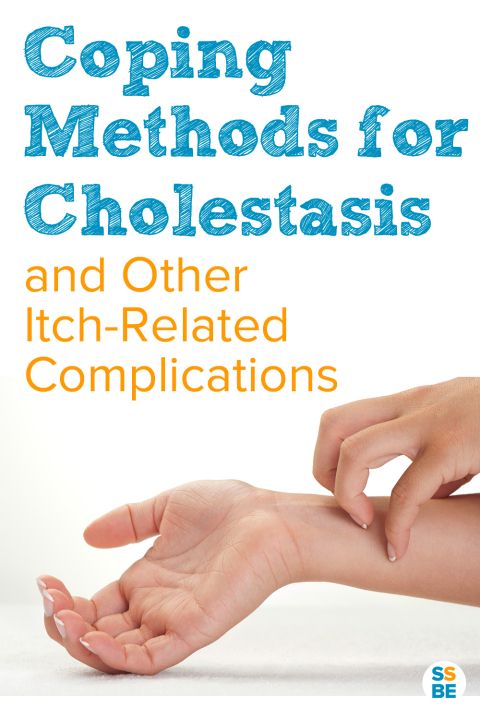 Consider these natural remedies you can try at home:
Consider these natural remedies you can try at home:
- Change perfumes or detergents. You may even consider making your own soap/perfumes/detergents to avoid chemicals in commercial products that irritate your skin.
- Wear loose clothing made from natural fabrics. (This will help keep potentially irritating fabrics away from your skin AND help keep you cool to avoid any heat-related rashes!)
- Take an oatmeal bath or use a yogurt skin treatment. Lathering up with pine tar soap is a common home remedy for PUPPP.
- Use a moisturizer to help with dry skin. Olive oil and coconut oil are both very moisturizing as are shea and coconut butter.
- Apply some calamine lotion. This chalky pink liquid isn’t just for bug bites and poison ivy!
- Increase your water intake and make sure that you’re staying hydrated. Don’t forget to include electrolytes in your hydration.
 Making sure to include some coconut water or a water with electrolytes added will help your body to make the most of the water that you’re providing it.
Making sure to include some coconut water or a water with electrolytes added will help your body to make the most of the water that you’re providing it. - Turn on your humidifier and/or a fan. Keeping the air moist and cool will help with dry skin and itchy heat-related rashes.
Remember: If itching doesn’t improve or gets worse, it’s time to make plans to visit your doctor!
You should see your doctor if you have any of the following.
Signs of cholestasis
- jaundice (a yellowing of the skin and the white area of the eye)
- dark urine
- lack of appetite
- nausea
- light stool
- depression
- intense itchiness, including itching feet
Cholestasis is a liver condition that results in a build-up of bile acids in the blood. There is not usually a rash, but the skin may develop a more yellow tone. In pregnancy, the condition, if it does appear, occurs in the third trimester.
Your doctor will diagnosis cholestasis with a blood test. A medical history will also typically be taken, because cholestasis can be an inherited condition and is more common if your mother or sister also had it during one of their pregnancies.
Many over-the-counter anti-itch medications will not be effective if cholestasis is the cause of your itch, but your doctor may be able to prescribe other drugs that can help alleviate some of the itchiness and reduce the amount of bile acid in the blood.
Ultimately, the solution to cholestasis is delivering the baby, and the itch will usually clear up within a few days of giving birth.
Because there is an increased chance of stillbirth, fetal distress, and preterm delivery, your doctor may want to discuss an earlier induction or more frequent monitoring during your pregnancy (and for a period after delivery) if you are diagnosed with cholestasis.
Signs of PUPPP
- rash made up of small, pimple-like dots, typically spreading from stretch mark areas and not extending beyond the breasts
- blisters around the rash
- feeling extra itchy at night
Typically, your doctor will diagnose PUPPP through a skin examination. In rare cases a skin biopsy may be ordered. Blood work to rule out an infection may be done as well.
In rare cases a skin biopsy may be ordered. Blood work to rule out an infection may be done as well.
The ultimate cure for PUPPP is to deliver the baby, and the rash will usually be gone within a few weeks of delivery. Moisturizers, steroid creams, and antihistamines prescribed by your doctor, as well as itch relieving baths, can help to temporarily relieve itchiness until your due date.
Signs of prurigo
- itchy, crusty bumps on the arms, legs, or abdomen
While moisturizers may help with the itch from prurigo, treatment typically involves topical steroids and oral antihistamines. If you’ve had prurigo during one pregnancy, there’s an increased chance that you’ll experience it in future pregnancies. While it may clear up shortly after giving birth, it can also unfortunately last for weeks or even months after giving birth.
If you feel intensely itchy or itchy for a prolonged time during your pregnancy, it’s a good idea to check in with your OB or midwife. They can prescribe medications, rule out various illnesses, and make sure that you and your little one are safe.
They can prescribe medications, rule out various illnesses, and make sure that you and your little one are safe.
That intense itch you’re feeling during pregnancy could be due to many different things. It’s important to think about any other symptoms you’re experiencing, the timeline of your itchiness, and even just your daily activities to figure out how to solve this uncomfortable problem.
Because itchiness can be a symptom of a more serious condition, it’s important to consult with your doctor if it continues or any other symptoms appear.
After all, you don’t want your itching to distract you from experiencing the morning sickness, heartburn, and frequent trips to the bathroom you’ve been warned about from other pregnant women!
Pregnancy Symptoms: 19 Early Signs of Pregnancy
Sometimes it's hard to interpret the signals your body is sending you. If you suspect you might be experiencing the first signs of pregnancy, you're probably eager to know for sure. Here we list some of the early signs of pregnancy as well as symptoms you may experience throughout your pregnancy. Keep in mind that every pregnancy and every mom-to-be is different, so you may not notice every single sign and symptom listed.
Here we list some of the early signs of pregnancy as well as symptoms you may experience throughout your pregnancy. Keep in mind that every pregnancy and every mom-to-be is different, so you may not notice every single sign and symptom listed.
First Signs of Pregnancy
Did you miss your period, and are starting to ask yourself “Am I pregnant”? Or, maybe there's a gut feeling that you can’t shake. It's normal and understandable to wonder what are the early signs of pregnancy as you mentally cross off the different feelings you’ve been experiencing in the past few days. You may start experiencing specific signs and symptoms of pregnancy early on even before you know for sure that you’re pregnant. Of course, either a home pregnancy test or a test through your healthcare provider will be the best way to determine if you’re pregnant. In the meantime, take this “Am I Pregnant?” quiz and read up on some of the early pregnancy signs and symptoms you may start feeling about one to two weeks after a missed period and within the first month of being pregnant:
Missing a period.
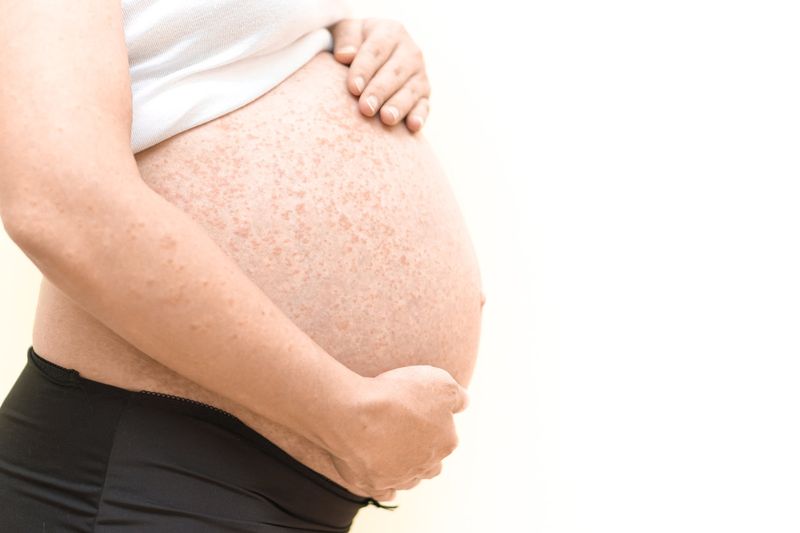 One of the very early signs of pregnancy is a missed period, though if you have an irregular menstrual cycle, this sign can be misleading.
One of the very early signs of pregnancy is a missed period, though if you have an irregular menstrual cycle, this sign can be misleading.
Spotting. Very light spotting known as implantation bleeding, can be an early sign of pregnancy. It happens when the fertilized egg attaches itself to the lining of the uterus.
Cramping. Some moms-to-be experience mild uterine cramps during the first trimester. To soothe your lower abdomen, place a hot water bottle, wrapped in a towel, on your belly or take a warm bath.
Hot flashes. Elevated pregnancy hormone levels early in your pregnancy and a metabolism that has sped up can both lead to a feeling of hot flashes resulting from an increase in your core body temperature. Your body compensates for this hot feeling by sweating more to help cool you down.
Racing heart. Hormonal changes can also cause heart palpitations, but if they last more than a few seconds, or if they happen frequently, contact your healthcare provider for a checkup to make sure everything is OK.
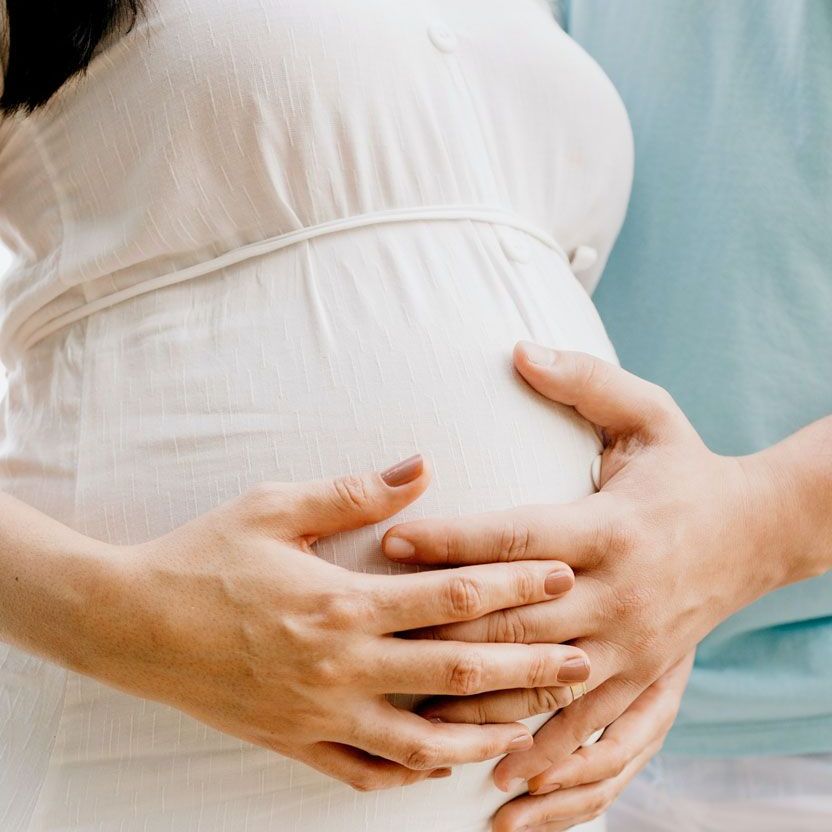
Mood swings. Finding out you’re pregnant is a big milestone, and it’s natural to feel everything from joy and excitement to anxiety and confusion. It may help to speak to your loved ones about your feelings.
Bloating and constipation. As the digestive system slows, you may also feel bloated (similar to what it can feel like at the start of your period) and constipated. Eat high-fiber foods, drink lots of water, and—if you can—add some exercise to your day.
Heartburn. During pregnancy the muscles that keep digestive acids out of the esophagus tend to relax, which can lead to acid reflux, commonly known as heartburn. Eat small, frequent meals, and avoid fried foods, citrus fruits, chocolate, and spicy or fried foods to help prevent heartburn.
Acne. The overproduction of sebum (oil) in the skin can cause pimple outbreaks during pregnancy. Gently cleanse your skin each day, use non-greasy cosmetics, and consult your healthcare provider about anti-acne medications that are safe.
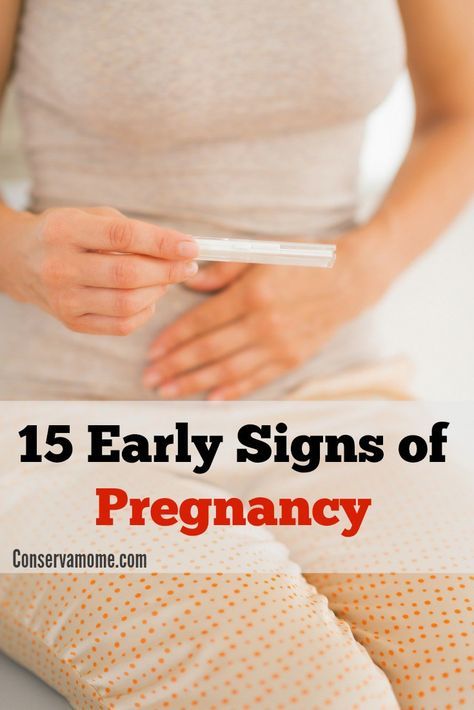
Dizziness. Low blood sugar levels, stress, and fatigue can make you feel dizzy or faint. To prevent dizziness in pregnancy, try to eat small, regular meals, and try to keep stress under control.
Weight gain. Some women gain between 1 to 4 pounds in the first few months of pregnancy, but your doctor will be able to advise you on healthy pregnancy weight gain that is right for you.
Congestion. Early in pregnancy, the mucous membranes in your nose swell, dry out, and bleed easily. To help relieve congestion, consider using a humidifier, or try saline drops or a saline rinse, and remember to stay hydrated.
Headaches. These can be an early sign of pregnancy as estrogen levels rise. You may also experience tension headaches, which may be caused by stress or fatigue. Check with your healthcare provider about possible medications; for most pregnant women, acetaminophen is considered safe to treat the odd headache.

Frequent urination. If you find that you’re peeing a lot more than usual, it could be a sign of pregnancy as your kidneys are processing more fluid, which end up in your bladder. Don’t drink less water, though, as keeping hydrated is very important.
Tender, swollen breasts. Early on, your breasts may feel more tender and become larger, but as your body adjusts to the hormonal changes, the discomfort may decrease.
Nausea. With or without vomiting, nausea is a classic pregnancy symptom more commonly called morning sickness. So, how soon does morning sickness start? It often appears around a month after you become pregnant. For some women, morning sickness occurs at other times of the day, not just in the morning, while other women won’t experience it at all. Eat something before getting out of bed, like crackers, and then have small, regular meals throughout the day to keep your blood sugar levels stable.
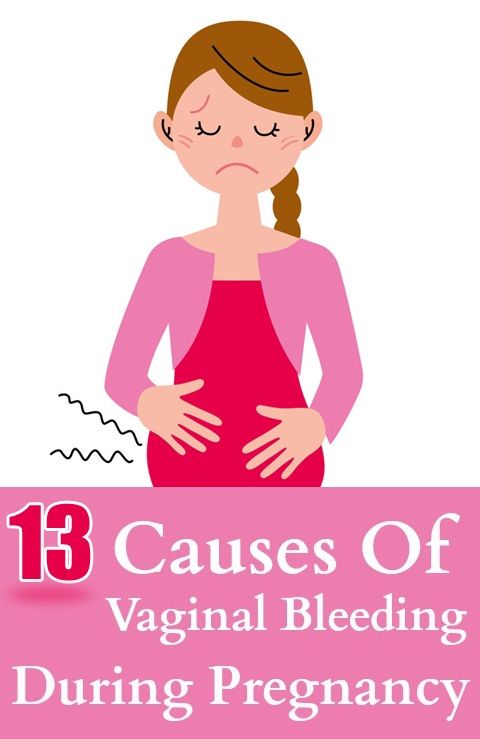
Food cravings and aversions/smell sensitivity. Early signs of pregnancy also include changes in taste, smell, and cravings. Keep up a balanced diet and talk to your doctor if you crave non-food items (like chalk or dirt).
Fatigue. It’s natural to feel tired while pregnant, particularly early on when the hormone progesterone is in overdrive, making you feel tired. Your body is working hard to support your baby, so give yourself plenty of time to rest and relax.
Skin changes. You may notice skin pigmentation changes, such as the darkening of the skin around your nipples, dark patches on your face, or the appearance of a dark line from your navel to your pubic bone.
Do All Women Experience Early Signs and Symptoms of Pregnancy?
Each mom-to-be and each pregnancy is unique, so you may only notice some of these early signs of pregnancy.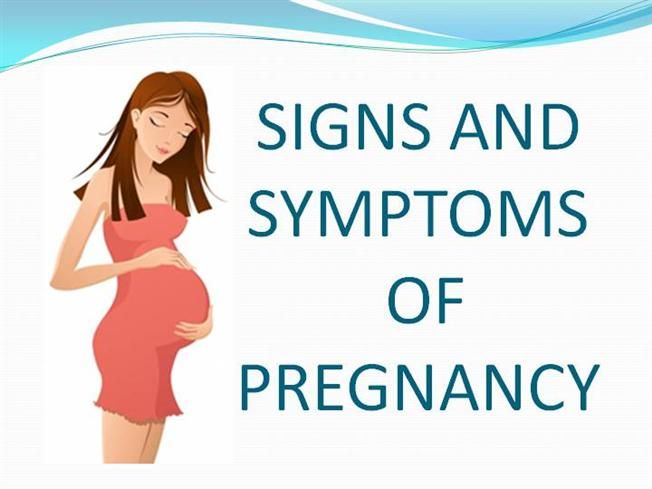 For example, the first signs and symptoms of pregnancy could occur before a missed period; alternatively, missing a period may be your first clue that you’re pregnant. What’s more, the symptoms you notice in a second pregnancy may be different from what you experienced the first time around.
For example, the first signs and symptoms of pregnancy could occur before a missed period; alternatively, missing a period may be your first clue that you’re pregnant. What’s more, the symptoms you notice in a second pregnancy may be different from what you experienced the first time around.
When Do Pregnancy Symptoms Start?
You may be wondering when pregnancy symptoms start. Once again, it’s different for every woman. Some may experience early signs of pregnancy in the first few weeks after conception. Others may be pregnant and not experience any symptoms at all for a while.
How Do You Know You’re Pregnant?
You may be asking yourself “How do I know if I’m pregnant?” If you think you may be pregnant, a home pregnancy test will confirm it. There’s no way to know that you are pregnant without taking a test.
If you’re experiencing any of the symptoms of pregnancy and take a home pregnancy test but the test comes out negative, there’s still a chance you may be pregnant.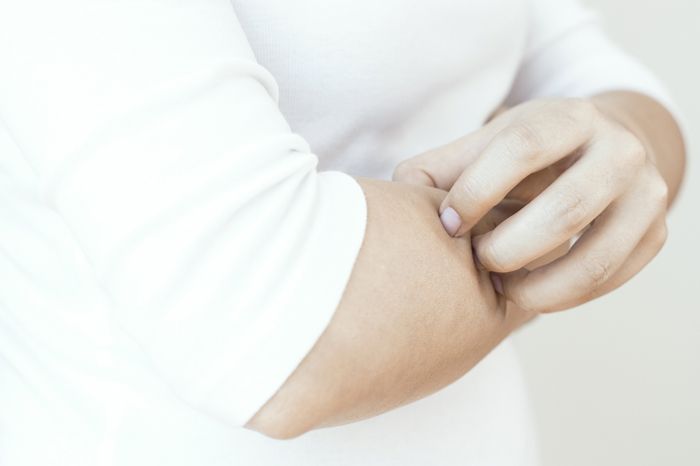 Wait until your period is a week late (or more), and then take the test again.
If the test comes out positive, make an appointment with your healthcare provider to confirm the pregnancy.
Once your pregnancy is confirmed, check out our go-to pregnancy guide, which includes lots of pertinent information and tools you'll need to navigate your pregnancy, including infographics, checklists, trackers, and more!
If you like, use our due date calculator to find out how far along you are in your pregnancy:
Wait until your period is a week late (or more), and then take the test again.
If the test comes out positive, make an appointment with your healthcare provider to confirm the pregnancy.
Once your pregnancy is confirmed, check out our go-to pregnancy guide, which includes lots of pertinent information and tools you'll need to navigate your pregnancy, including infographics, checklists, trackers, and more!
If you like, use our due date calculator to find out how far along you are in your pregnancy:
Other Signs and Symptoms You May Experience During Pregnancy
Throughout your pregnancy, your body will do some unique and wonderful things. Some of these physical changes (like morning sickness) may subside, while others (like nasal congestion and heartburn) may continue over the course of your pregnancy.
These are some of the changes you may experience during the second and third trimesters of your pregnancy:
Discharge.
 A sticky, clear, or white vaginal discharge is a normal symptom during pregnancy not necessarily an early sign but contact your healthcare provider if it becomes strong smelling or is accompanied by a sore, itchy vagina.
A sticky, clear, or white vaginal discharge is a normal symptom during pregnancy not necessarily an early sign but contact your healthcare provider if it becomes strong smelling or is accompanied by a sore, itchy vagina.
Cramps or pain in the lower abdomen. In later pregnancy, you may experience a cramping sensation, which may be a result of round ligament pain or Braxton Hicks “practice” contractions.
Back pain. Backaches can be caused by hormonal changes, weight gain, and changes in your posture due to your growing belly. Practicing good posture, sleeping on your side, and getting some physical activity in each day may help relieve the pain.
Frequent urination. Although the more frequent urination that you may have experienced early in pregnancy probably subsides in the second trimester, by the third trimester, it may return. This is because your growing baby moves deeper into the pelvis, putting pressure on your bladder, so you may feel the urge to pee more often.
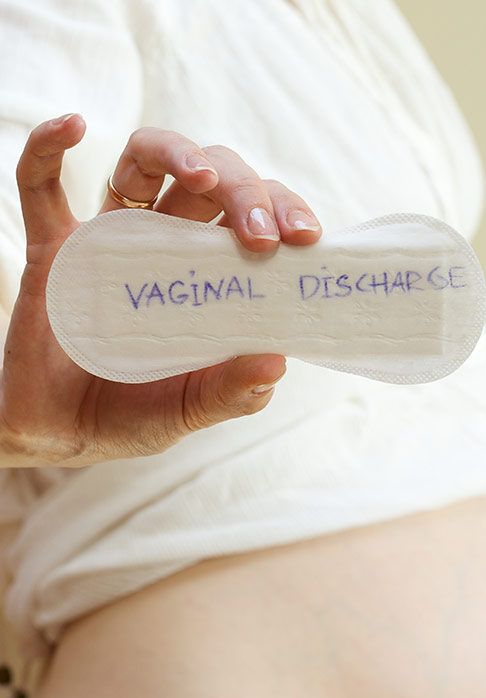
Itchy Skin. Wherever your skin stretches during pregnancy (for example, the abdomen and thighs), it could start to feel itchy. Avoid scratching, use a good moisturizer, and shower or bathe in lukewarm water, as hot water can dry out skin.
Stretch marks. As your skin stretches during pregnancy, you may notice stretch marks forming on areas like your belly, thighs, buttocks, and breasts. Gaining a healthy amount of weight slowly over the pregnancy may help minimize these streaks.
Shortness of breath. Your growing baby pushing against your lungs may cause that out-of-breath feeling. Good posture may give your lungs more room to expand.
Various aches and pains. You may encounter different symptoms at different points throughout pregnancy, such as dental pain or sensitivity, varicose veins or hemorrhoids, and swollen ankles or leg cramps. Read more about some of these aches and pains along with tips here.
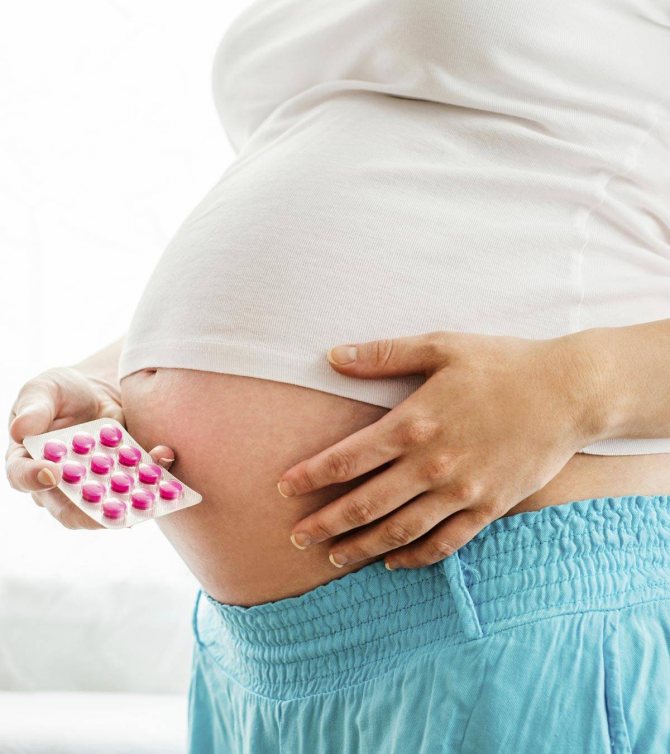
Watch the following video to find out how your partner can be more involved during your pregnancy:
When to Consult Your Healthcare Provider
Most of the time, the aforementioned physical discomforts and changes are completely normal, but there are some signs you should not ignore, including severe headaches, changes in eyesight, or sudden swelling (edema). If you notice anything that just doesn’t seem right, consult your healthcare provider.
The Bottom Line
Early signs of pregnancy can be as subtle as a food craving or an aversion, or more noticeable like spotting or tender breasts. As your pregnancy progresses some of these signs and symptoms will likely return, such as heartburn, cramping, and frequent urination. If you’re unsure whether you’re pregnant but have been experiencing some of the early signs of pregnancy, take a home pregnancy test or visit your healthcare provider. The signs and symptoms of pregnancy can be tiresome, especially if you’re experiencing several simultaneously, but sooner than you know it, you'll be giving birth and taking your baby home. This is just the beginning of an amazing journey!
See our Pregnancy Calendar for a more detailed description of everything that happens during each week, month, and trimester.
The signs and symptoms of pregnancy can be tiresome, especially if you’re experiencing several simultaneously, but sooner than you know it, you'll be giving birth and taking your baby home. This is just the beginning of an amazing journey!
See our Pregnancy Calendar for a more detailed description of everything that happens during each week, month, and trimester.
First signs of pregnancy before delay, early symptoms
Significant hormonal changes occur during pregnancy. This causes a number of symptoms. Some women experience pregnancy symptoms right away, while others may only have a few. About the first signs of pregnancy at an early stage and when exactly the initial signs of pregnancy appear are described in the article.
At what time do the first signs of pregnancy appear
The answer to the question when the first signs of pregnancy appear is quite ambiguous, because some women do not feel any signs at all during the first few weeks.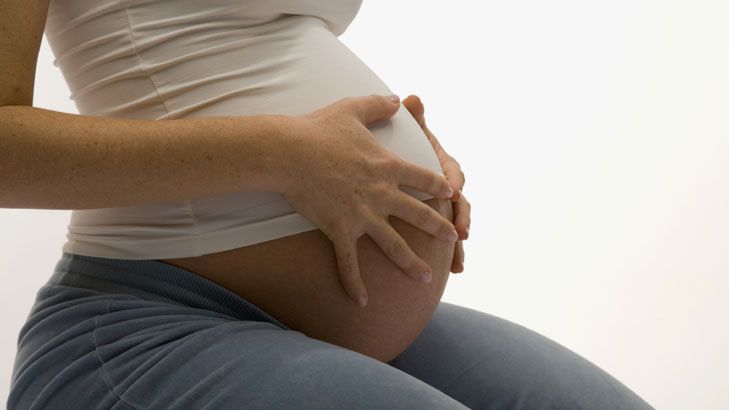 At what week do the first signs of pregnancy appear in others? When do the first signs of pregnancy appear after conception? Symptoms of very early pregnancy (such as breast tenderness) may appear before a missed period, as early as six to seven days after conception, while other early signs of pregnancy (such as spotting) may appear about a week after ovulation. We will tell you more about the first signs of pregnancy before menstruation and when the signs of pregnancy appear.
At what week do the first signs of pregnancy appear in others? When do the first signs of pregnancy appear after conception? Symptoms of very early pregnancy (such as breast tenderness) may appear before a missed period, as early as six to seven days after conception, while other early signs of pregnancy (such as spotting) may appear about a week after ovulation. We will tell you more about the first signs of pregnancy before menstruation and when the signs of pregnancy appear.
What are the earliest signs of pregnancy?
The first signs of pregnancy in the early stages:
- delayed menstruation - 29%;
- nausea - 25%;
- mood swings - from 14 to 23%;
- breast changes - 17%;
- pain in the lower abdomen - 15%;
- depression - 15%;
- fatigue, drowsiness - 13%
- decrease in immunity - 6%;
- the first signs of pregnancy - discharge or implantation bleeding - only 3%.
Physiological first signs of pregnancy
What are the very first symptoms of pregnancy?
The most common physiological signs of pregnancy include:
- Tender and enlarged breasts.
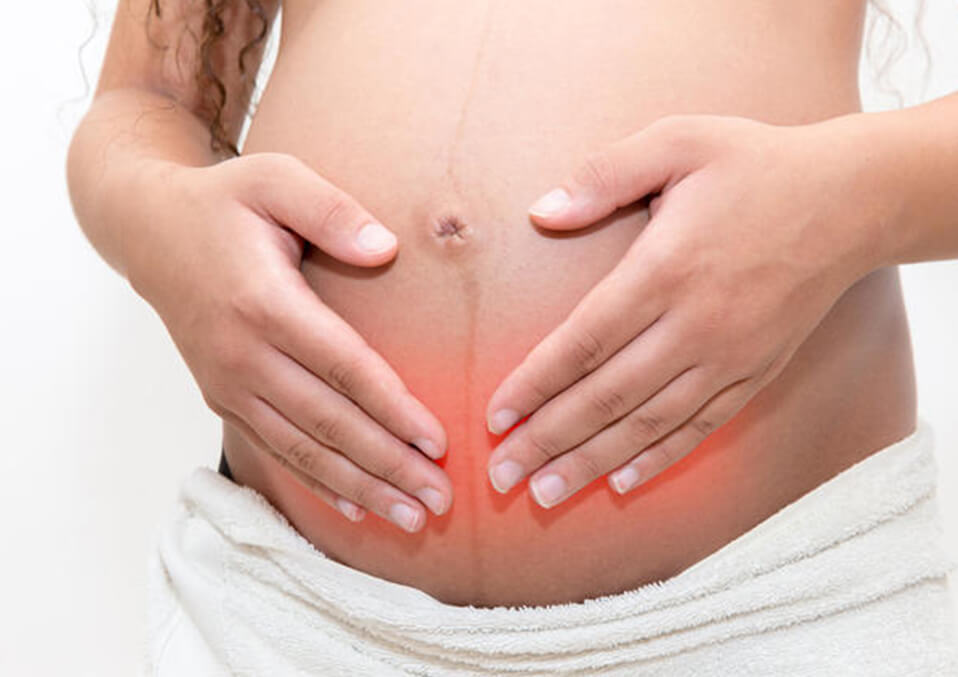 Signs of pregnancy in the first days after conception include breast changes (1-2 weeks after conception). The area around the nipples, called the areola, may also darken.
Signs of pregnancy in the first days after conception include breast changes (1-2 weeks after conception). The area around the nipples, called the areola, may also darken.
- Drowsiness and fatigue. Fatigue is also among the signs of pregnancy in the first days after conception. During early pregnancy, levels of the hormone progesterone rise dramatically, which can cause drowsiness.
- Nausea with vomiting. When do these signs of pregnancy appear? Morning sickness, which can appear at any time of the day or night, often appears between the second and eighth weeks after conception.
- Dizziness and fainting . This may be due to dilation of blood vessels, lowering blood pressure and blood sugar levels.
- Spasms. Some women experience symptoms of pregnancy in the early days, such as mild uterine cramps.
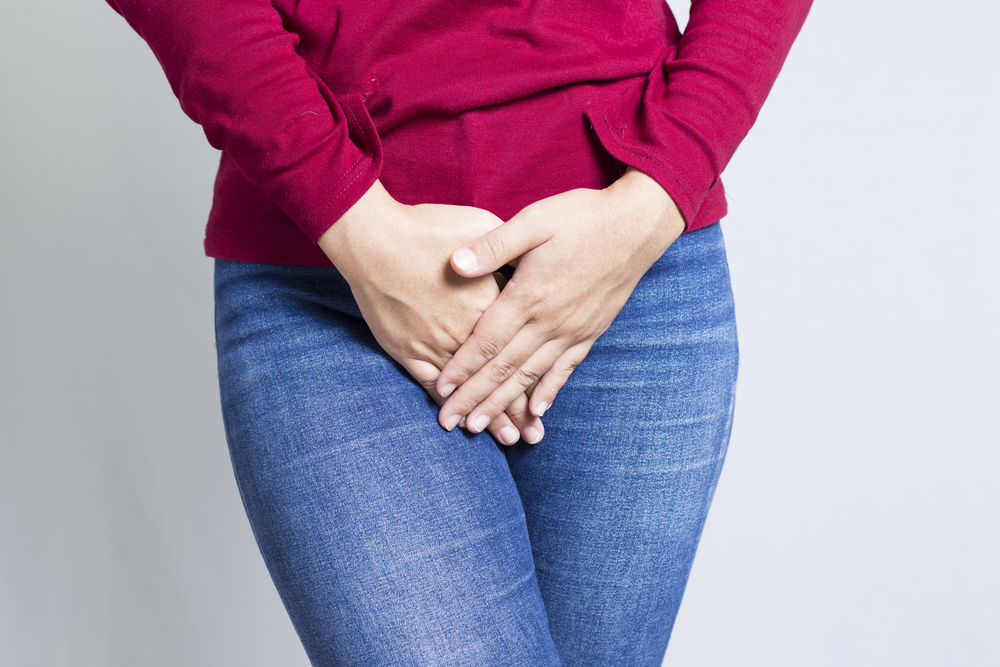
- Headaches and back pains. Many pregnant women complain of frequent headaches, while others experience back pain.
- Insomnia - another first sign of pregnancy before the test. Causes can include stress, physical discomfort, and hormonal changes.
- Change in taste preferences. Like most other symptoms of pregnancy, these eating habits can be attributed to hormonal changes.
- Temperature. Early signs of pregnancy include fever (37-37.5).
- Delayed menstruation. How long does it take for the first signs of pregnancy to appear? If you are of childbearing age and a week or more has passed without your expected period, you may be pregnant. However, this symptom can be misleading if you have an irregular menstrual cycle.
- Bloody discharge - the first signs of pregnancy .
 This bleeding, known as implantation bleeding, occurs when a fertilized egg attaches to the lining of the uterus, approximately 10 to 14 days after conception.
This bleeding, known as implantation bleeding, occurs when a fertilized egg attaches to the lining of the uterus, approximately 10 to 14 days after conception.
- Bloating, heartburn. Hormonal changes can cause problems with the stomach and esophagus - these are common signs of pregnancy at 2 weeks.
- Constipation . Hormonal changes cause the digestive system to slow down, which can lead to constipation (signs of pregnancy after a delay).
- Frequent urination. You may urinate more than usual, which is a common sign of pregnancy at 5 weeks. During pregnancy, the amount of blood in the body increases, causing the kidneys to process excess fluid that enters the bladder.
- Runny nose. The appearance of this symptom is associated with excessive production of the hormone estrogen.
- Exacerbation of chronic diseases.
 This is a sign of pregnancy after ovulation.
This is a sign of pregnancy after ovulation.
- Increased salivation. Also associated with hormonal changes.
- Sense of smell enhancement . Signs of pregnancy in the first two weeks may cause sensitivity to certain smells and the sense of taste may change.
Emotional first signs of pregnancy
The first signs of pregnancy before the delay (the earliest signs of pregnancy) include psycho-emotional symptoms.
- Mood swings.
- Irritability.
- Vulnerability, tearfulness.
- Capriciousness.
- Depression.
These are all emotional signs of early pregnancy that many women report. They describe feelings of heightened emotion or even bouts of crying, which are associated with rapid changes in hormone levels in the body. Also, signs of pregnancy at week 4 can make you feel PMS-style cranky. In addition, about 15% of women suffer from depression or anxiety during pregnancy. And after childbirth, these conditions suffer even more. In this case, it is better to seek help from a doctor.
And after childbirth, these conditions suffer even more. In this case, it is better to seek help from a doctor.
Do everything you can to improve your mood: get plenty of rest, eat well, get enough sleep, do things you love, and pamper yourself.
However, be aware that mood swings can be caused by a number of conditions other than pregnancy.
Influence of early pregnancy on daily routine
Early signs of pregnancy, mainly those that bring discomfort, can cause a change in daily routine. Here are some tips on what you can do with some of them:
- In case of toxicosis, avoid too hot or too cold food - this provokes an attack of vomiting. Eat often - at least 5-6 times a day, but in small portions.
- For nausea or vomiting, try ginger, chamomile, or vitamin B6.
- Drink plenty of water, in small sips between meals, to replenish lost fluids. Teas, juices, fruit drinks are also suitable.
- For back pain, wear shoes or shoe insoles designed for pregnant women and avoid high heels.
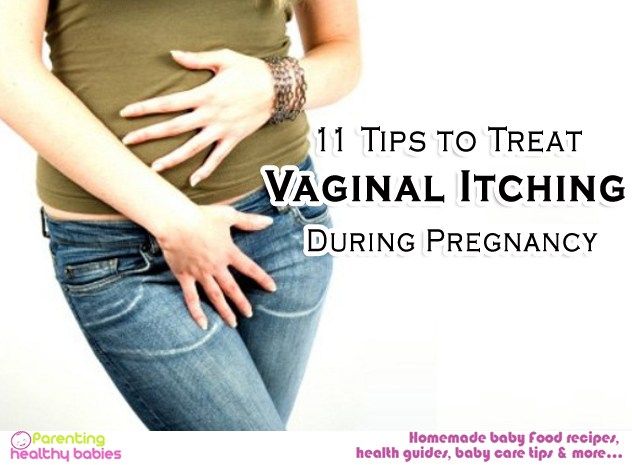 Sleep on a firm mattress.
Sleep on a firm mattress. - For chest discomfort, wear a special bra that supports enlarged breasts.
- For constipation, eat more fiber-rich foods such as wheat bran and fresh vegetables and fruits.
- If you suffer from headaches and mood swings, try stress reduction techniques such as yoga or meditation.
- Be outdoors more often, at least half an hour a day. This helps to reduce the symptoms of toxicosis, calm the nervous system.
- Maintain your daily physical activity for as long as it is convenient for you to perform certain activities.
- Eat a balanced diet with enough proteins, fats and carbohydrates.
Important! All these tips are advisory in nature, be sure to consult your doctor if you encounter discomfort.
What to do if you notice early signs of pregnancy
To make sure the signs of pregnancy are accurate, you can use the following methods to diagnose early pregnancy:
- Donate blood for hCG.
 This method can be used a few days after conception. This type of pregnancy test is done using a small sample of blood that is analyzed in a hospital. It determines whether there is a pregnancy hormone in your body and in what quantity. Its accuracy is 99%.
This method can be used a few days after conception. This type of pregnancy test is done using a small sample of blood that is analyzed in a hospital. It determines whether there is a pregnancy hormone in your body and in what quantity. Its accuracy is 99%. - Use a test strip. It can be used at home from the first days of delay. To determine pregnancy, dip the reagent area of the test strip into the urine. Accuracy: 99%. You can buy Evitest or HomeTest test strips in our pharmacy.
- Use jet or electronic test. They can be used at home a few days before your expected period. You need to remove its protective cap, substitute the test under the stream of urine for 10 seconds, and after 3-5 minutes get the result. Accuracy: 97%. In our pharmacy you can buy Evitest or Alpe inkjet tests.
- Get your first ultrasound. You can use this method at 3-4 weeks from the start of a missed period.
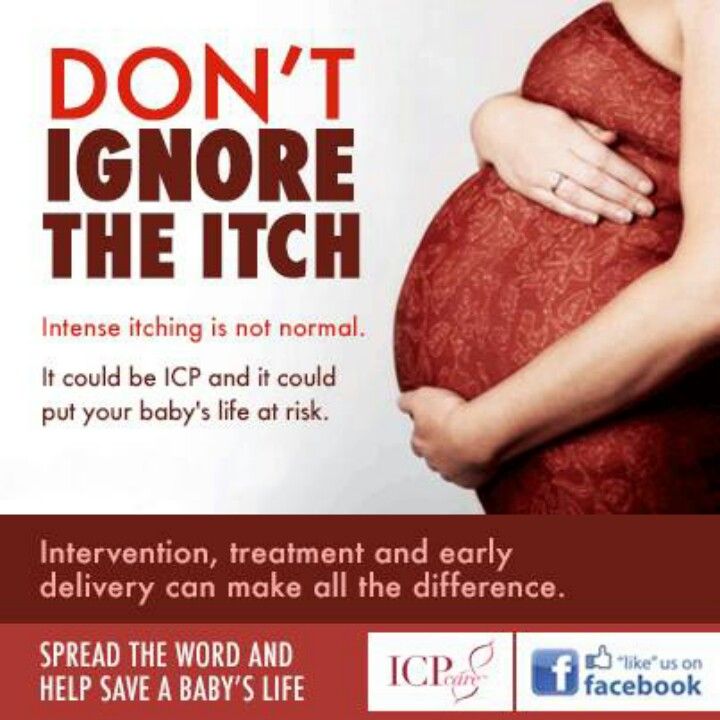 At this time, ultrasound will show the very fact of uterine pregnancy, and the place of attachment of the fetal egg is also determined. Accuracy: 100%.
At this time, ultrasound will show the very fact of uterine pregnancy, and the place of attachment of the fetal egg is also determined. Accuracy: 100%.
Help Doc.ua: you can make an appointment with a gynecologist on the website.
The first signs of pregnancy in the early stages - how to determine whether conception has occurred?
Table of contents:
- General information
- First signs of pregnancy
- Minor signs of pregnancy
- Signs of pregnancy while breastfeeding
- Types of pregnancy diagnostics
Not every woman realizes that the long-awaited pregnancy has already begun. Indeed, the first signs of the birth of a new life can easily be mistaken for the harbingers of menstruation. How to determine pregnancy in the early stages and prepare for the thought that you will have a baby? In this article, we will give an answer to this question.
General information
Some women quickly realize that they are about to become a mother, others do not notice any changes in their condition for a long time.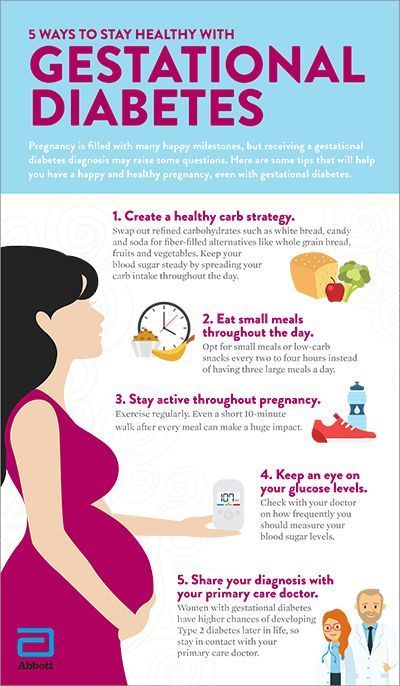 But if you listen to yourself, it will not be difficult for you to recognize the first signs of pregnancy even before the test shows the coveted two strips. This will allow you to see a doctor as soon as possible in order to undergo the necessary examination and ensure peace of mind for the next nine months.
But if you listen to yourself, it will not be difficult for you to recognize the first signs of pregnancy even before the test shows the coveted two strips. This will allow you to see a doctor as soon as possible in order to undergo the necessary examination and ensure peace of mind for the next nine months.
After how many days can you find out about pregnancy?
In the very first days after conception, the body will not give you any specific signals. Signs of pregnancy in the early stages can be observed no earlier than the 8-10th day from the moment of fertilization of the egg, when the embryo attaches to the wall of the uterus and the pregnancy hormone, chorionic gonadotropin, begins to enter the mother's body. How noticeable they appear depends on the body's sensitivity to hormonal changes. On the 20th day of embryo development (coincides with the first days of delayed menstruation), most women usually guess about their condition.
Important! Standard rapid tests determine the content of human chorionic gonadotropin in the urine at the 3-4th week of pregnancy, i. e. 1-2 weeks after fertilization 1 .
e. 1-2 weeks after fertilization 1 .
During this period, it is extremely important that the body receives all the necessary vitamins and minerals for the development of the baby. Therefore, as soon as you begin to suspect that you are expecting a baby, start taking special vitamin and mineral complexes. This is important because the formation of all organs and systems of the embryo occurs from the very first weeks.
The first signs of pregnancy
After fertilization of the egg and its transition from the fallopian tube to the uterine cavity, a series of hormonal changes occur in the woman's body, which rather quickly make themselves felt in the form of the first signs of pregnancy in the early stages1.
Breast enlargement and tenderness
A few days after the expected date of menstruation:
- breasts swell,
- nipple halo widens and darkens,
- bumps on the halo, the so-called tubercles of Montgomery, increase in size.

If swollen breasts cause discomfort and pain during sleep, try wearing a padded bra without wires at night.
Important! The mammary glands are designed in such a way that they do not have muscles that could prevent the skin from stretching, therefore, during pregnancy and lactation, it is necessary to wear a supportive bra and change it in accordance with breast growth to avoid squeezing.
Nausea
This is not a sure sign of pregnancy, as nausea can also be caused by digestive problems. But in combination with other symptoms, nausea often signals that you will have a baby. In the first trimester, this is an absolutely normal, albeit unpleasant, manifestation of your new condition.
Nausea is more often mild and occurs only in the morning, but if it continues throughout the day and is accompanied by vomiting, then a doctor should be consulted.
A few simple tips will help you get through the seizures that often overshadow the first weeks of pregnancy.
- If you feel sick in the morning, drink plenty of fluids. Before you get out of bed, you can eat low-fat yogurt - this will make you feel better. Avoid long breaks between meals, as even increased salivation when you are hungry can cause nausea. Salty crackers and biscuits are good snacks.
- Avoid coffee with milk, sweets and fried foods.
- Eat more often, but in small portions.
B vitamins and vitamin D can help reduce morning sickness. Add more whole grains, wholemeal bread, beef liver, cheese, dairy products and nuts, cabbage, apples to your diet. In addition, vitamin-mineral complexes specially designed for taking in the 1st trimester can replenish the reserves of these components.
Urination frequency
In the very first weeks of pregnancy, many women experience frequent urination. This is due to the increased production of the hCG hormone. Especially often the urge to go to the toilet disturbs at night.
Carefully monitor your condition, drink more fluids to make up for its losses.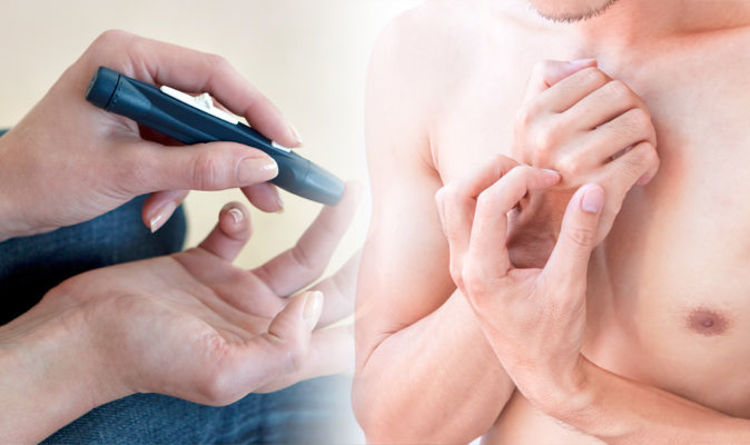 During this period, mineral water without gas, green tea, fruit drinks, compotes, juices half diluted with water are useful. They will not only replenish the volume of fluid, but also help reduce the severity of nausea.
During this period, mineral water without gas, green tea, fruit drinks, compotes, juices half diluted with water are useful. They will not only replenish the volume of fluid, but also help reduce the severity of nausea.
Hypersensitivity to smells
If you feel sick from morning coffee, perfume, or any other strong smell, you may be pregnant. Some women note an increased sensitivity to smells and a sharp change in taste preferences as one of the first signs of pregnancy even before the delay in menstruation in the early stages. Do not rush to get rid of perfume, the aroma of which has become unbearable: after the baby is born, the old aromas and tastes will again become pleasant to you.
To reduce nausea caused by smells, spend more time outdoors and walk more. While at home, ventilate the room for 5-10 minutes every two hours. Access to fresh air will help reduce discomfort.
Drowsiness and fatigue
Decrease in blood pressure at the beginning of pregnancy and more intense metabolic processes in the body often provoke severe fatigue.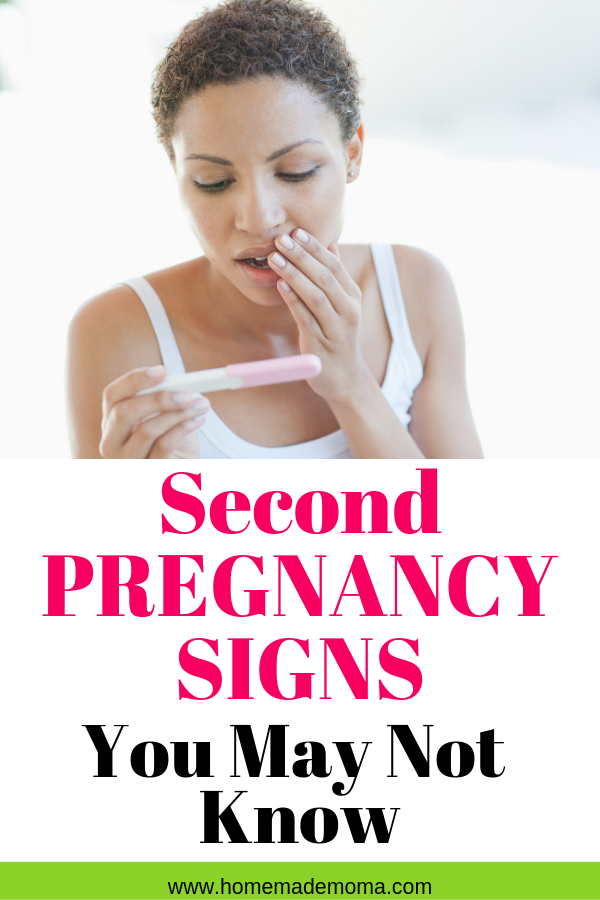 A balanced diet and walks in the fresh air will help to improve the general condition.
A balanced diet and walks in the fresh air will help to improve the general condition.
Important! If in the early stages you are haunted by dizziness, we can talk about anemia, that is, a lack of iron, or changes in blood pressure. It is necessary to consult a doctor.
To reduce the risk of developing anemia, it is necessary to eat foods containing iron: red meat, offal (beef liver, heart). In order for iron to be better absorbed from food, it is worth adding foods rich in vitamin C to the diet: fresh vegetables, citrus fruits, garden greens. Meat dishes, complemented by vegetable salad, are a great option. Special vitamin-mineral complexes for pregnant women with the inclusion of iron will help replenish stocks. They contain the necessary daily dose of this mineral.
Delayed menstruation
One of the most reliable signs of pregnancy. After menstruation stops, because the endometrium creates optimal conditions for the development of the child. However, cycle disorders can also be associated with stress, diseases of the reproductive organs and hormonal disruptions.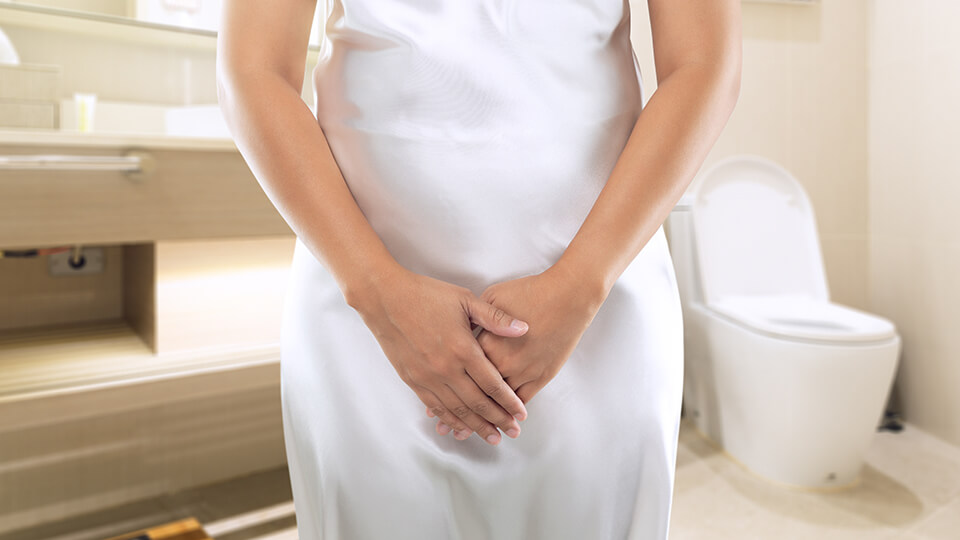
Important! About a week after conception, small spotting is possible, which accompanies the attachment of a fertilized egg in the uterus. Doctors call this phenomenon implantation bleeding. It is also considered one of the early signs of pregnancy.
Important! From the very first days you learn about pregnancy, you need to start taking folic acid. The active form of this substance is metafolin. When ingested, metafolin is 100% absorbed and helps the proper development of the baby's heart and brain.
Secondary signs of pregnancy
In addition to direct, there are indirect signs of pregnancy that will help confirm your guesses. They also shouldn't cause you concern.
Heaviness in the lower abdomen
The uterus is preparing to receive its new inhabitant, therefore the blood circulation in it increases, which is accompanied by characteristic sensations in the pelvic region.
Increased appetite
At the beginning of pregnancy, the body consumes more energy - no wonder you are constantly hungry.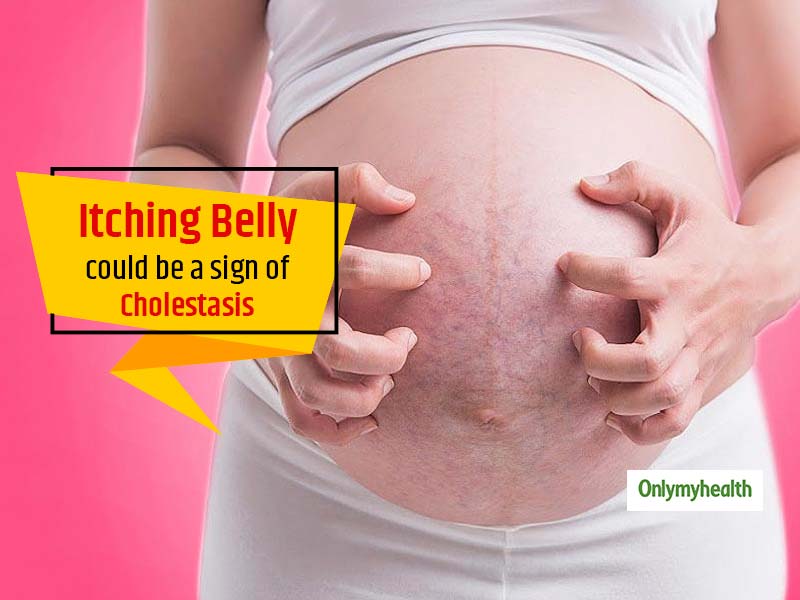 However, bouts of hunger attack just before the onset of menstruation, stress can also be the cause. In any case, you should not lean on fast food, sweets and starchy foods, especially if the suspicion of pregnancy is confirmed.
However, bouts of hunger attack just before the onset of menstruation, stress can also be the cause. In any case, you should not lean on fast food, sweets and starchy foods, especially if the suspicion of pregnancy is confirmed.
Diversify your diet with fresh fruits and vegetables, protein products (fish, chicken). An excellent snack between meals can be nuts, dried fruits, dairy products (cottage cheese, yogurt). They saturate well without giving an excess of calories.
Insomnia
It happens that as a result of hormonal and psychological changes, the expectant mother has difficulty falling asleep and often wakes up at night. Try to compensate for the lack of sleep by resting in the afternoon at least on weekends, before going to bed, take a walk in the fresh air and ventilate the bedroom for at least 10-15 minutes.
Important! Never take sleeping pills without consulting your doctor. There are many ways to improve sleep without drugs. A warm (not hot) shower or bath, reading a book, relaxing music helps. At least an hour before bedtime, you must stop using gadgets and watching TV: they overload the nervous system. Warm milk with a spoonful of honey before bed will help you fall asleep.
At least an hour before bedtime, you must stop using gadgets and watching TV: they overload the nervous system. Warm milk with a spoonful of honey before bed will help you fall asleep.
Constipation
During pregnancy, the increased production of progesterone relaxes the intestinal muscles, making digestion difficult. Include high-fiber foods in the menu in reasonable quantities: whole grain bread, fruits, vegetables.
Magnesium helps regulate bowel function, and it is also involved in the transmission of nerve impulses and muscle function. Magnesium is found in grains and nuts, dark chocolate, legumes, leafy vegetables and dairy products. To provide the body with a daily dose of magnesium will help to take a specialized vitamin and mineral complex for pregnant women.
Magnesium not only regulates bowel function, but has a sedative, anti-stress effect and is important for the prevention of increased uterine tone.
Headache
Due to the same hormones , the expectant mother feels a headache in the early stages, which can also be one of the signs of pregnancy.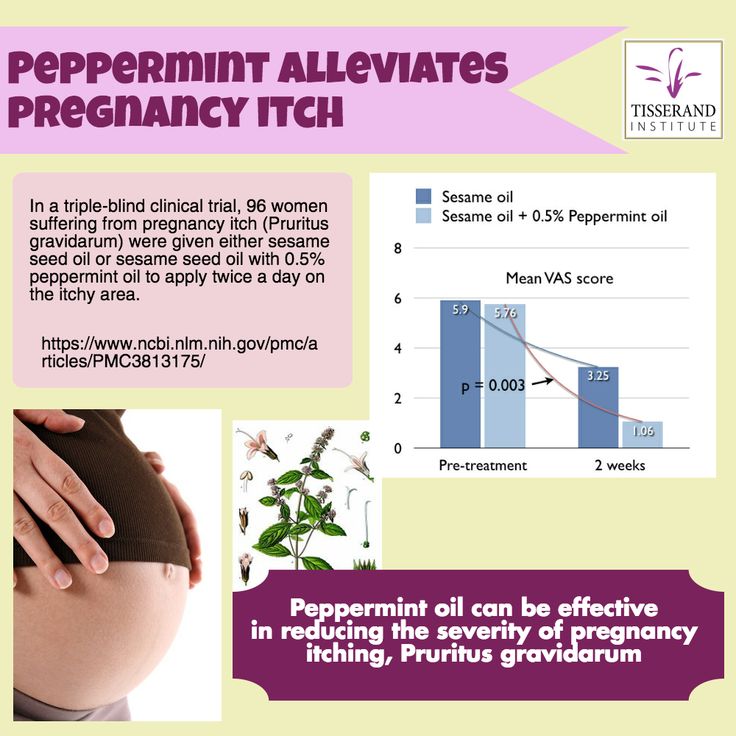 It is necessary to consult a doctor in order not to miss arterial hypertension.
It is necessary to consult a doctor in order not to miss arterial hypertension.
Make it a rule from the very beginning of pregnancy to regularly measure the pressure twice a day: in the morning, just waking up, before breakfast and hygiene procedures, and in the evening, at about 19-20 hours, after a 15-minute rest.
Irritability
Many pregnant women complain of emotional instability and mood swings in the early stages. When you find out the good news about the addition to the family, warn your loved ones that your whims had a very good reason.
Pimples
If you forgot about skin rashes after you got out of adolescence, then during pregnancy you may have to remember: acne can reappear on the face and again under the influence of hormones. Be patient, over time, the condition of the skin will return to normal.
It is important during this period to pay attention to face and body care. The immune system is being rebuilt to protect not only you, but also the baby, so choose hypoallergenic care products. They do not contain dyes and fragrances that can irritate the skin.
They do not contain dyes and fragrances that can irritate the skin.
Pigmentation on the abdomen
The appearance of a dark strip running from the navel to the lower abdomen is also included in the list of signs of early pregnancy.
Tingling in the groin
Under the influence of the hormone estrogen, the ligaments become more elastic so that the stomach can further increase in volume without hindrance. This process can respond with mild discomfort in the groin area.
Leg cramps
If you have calf cramps, this indicates a change in metabolism and, in combination with other symptoms of pregnancy, signals your condition.
Consult your doctor, he will select a set of measures that will save you from cramps, and tell you about measures to prevent varicose veins during pregnancy. Wear shoes with low heels, do foot baths with alternating cool and warm water, a light massage of the calf muscles and feet.
Thrush
An increase in vaginal secretions is normal during pregnancy.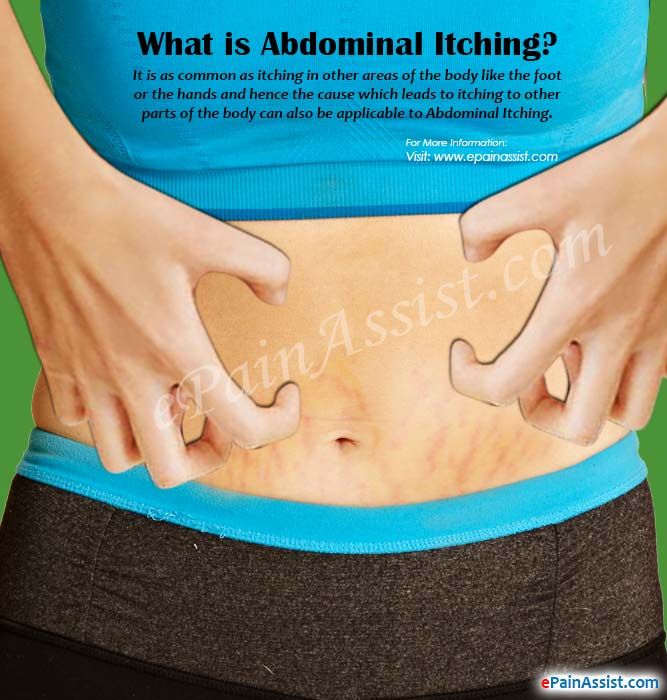 But if the discharge has become liquid and has acquired a gray-white color with an unpleasant odor, or, conversely, has become cheesy, flaky or purulent, be sure to consult your doctor. In these cases, the risk of infectious complications, including infection of the fetus, increases.
But if the discharge has become liquid and has acquired a gray-white color with an unpleasant odor, or, conversely, has become cheesy, flaky or purulent, be sure to consult your doctor. In these cases, the risk of infectious complications, including infection of the fetus, increases.
Signs of pregnancy while breastfeeding
The myth that a nursing mother cannot become pregnant is one of the most persistent. If the birth of another child is not in your plans, do not forget to use reliable methods of contraception. Your doctor will help you choose a contraceptive. If you are preparing to give your baby a brother or sister, it is not at all necessary to stop breastfeeding. Breastfeeding is also possible during pregnancy if your doctor allows it. It is important that you get all the minerals and vitamins you need. Pay attention to the sufficient intake of iodine: it helps in the formation of the brain and thyroid gland of the baby.
Why diagnosis of pregnancy is important
The sooner you find out that you are pregnant, the sooner you will be registered at the antenatal clinic and meet with doctors who will exclude the risk of ectopic pregnancy, hereditary and genetic diseases of the fetus, and will also provide all the necessary information about how to behave during pregnancy.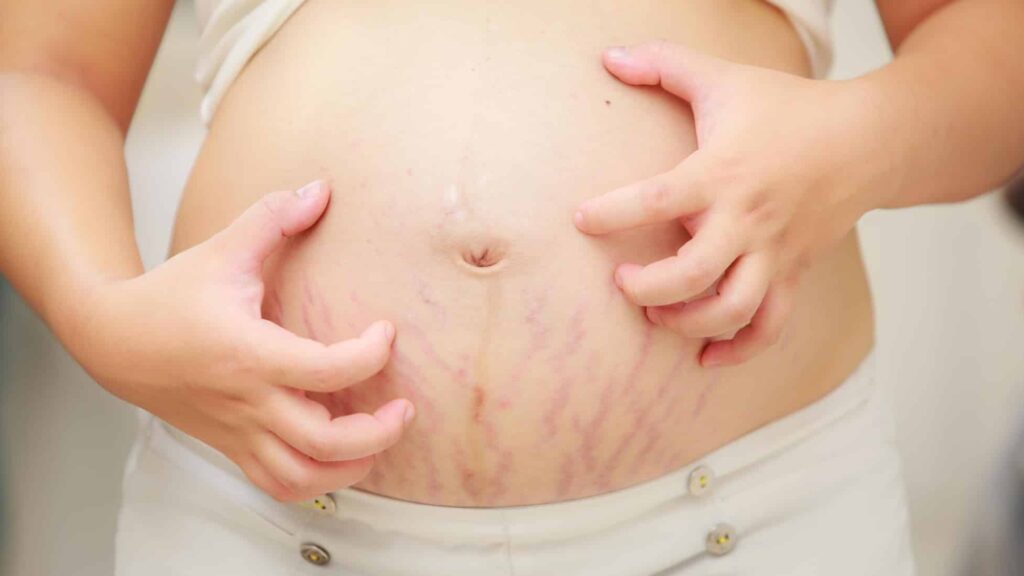 They will tell you the rules of nutrition and recommend taking special vitamin and mineral complexes for the proper formation of organs and the development of the baby, they will warn you about what changes will happen to you during this period, and indicate the timing of screening examinations that allow you to assess the course of pregnancy and fetal development.
They will tell you the rules of nutrition and recommend taking special vitamin and mineral complexes for the proper formation of organs and the development of the baby, they will warn you about what changes will happen to you during this period, and indicate the timing of screening examinations that allow you to assess the course of pregnancy and fetal development.
Types of pregnancy diagnostics
Pregnancy test
The level of human chorionic gonadotropin (hCG) increases gradually, so a standard rapid pregnancy test will give a reliable result only two weeks after conception.
Blood test
A laboratory blood test for hCG will give reliable information starting from the 7th day after the fertilization of the egg.
Ultrasound
Ultrasound will confirm pregnancy not earlier than 3-4 weeks after fertilization.
Gynecological examination
By examining the condition of the uterus, the gynecologist will also be able to diagnose pregnancy after implantation of the egg.
